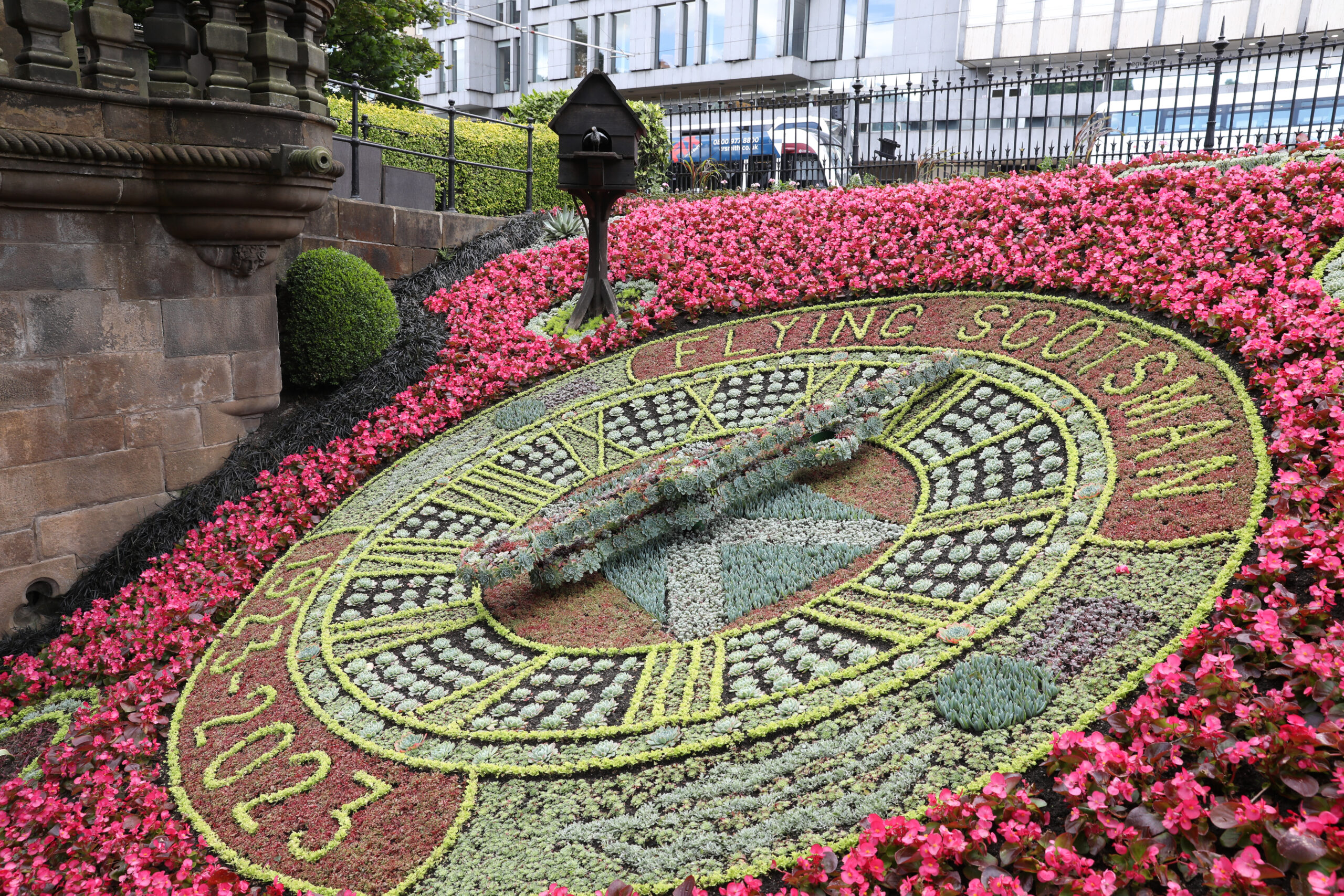This year’s design on the world’s oldest floral clock has been completed – with more than 50,000 flowers and plants.
For 2023, the hugely popular landmark in Edinburgh’s West Princes Street Gardens will celebrate 100 years of Flying Scotsman, the world’s most famous steam locomotive.
It took three gardeners just four weeks to plant the 50,000 flowers and plants used to create the clock, which will be in bloom until October.
There are 20 different plants included in this year’s design such as antennaria, crassula, echevaria, sedum, saxifrage and annuals such as pyrethrum, begonias and geraniums.
The dedication of the clock coincided with a visit to the Capital from the iconic locomotive.
‘I am delighted to once again see the city’s beautiful floral clock completed, and blooming in time for the special visit from Flying Scotsman’, said Edinburgh’s Lord Provost Robert Aldridge.
‘Each year the iconic clock marks special occasions and events in the heart of the Capital and this year it is a unique tribute coinciding with celebrations taking place around the country to celebrate 100 years of Flying Scotsman.
‘My thanks and congratulations to the dedicated and creative parks team who have put together the design that I’m sure will be enjoyed by everyone who passes by it this summer’

Credit: Steve Morgan / Science Museum Group.
Andrew McLean, National Railway Museum assistant director and head curator, said: ‘I first saw the clock when I was a boy and my grandfather was involved in helping maintain it as part of his job as the Clerk of Works for the City of Edinburgh Council from the late 1940s until the early 1980s.
‘It is an important part of Edinburgh’s history and was always a source of great pride so bringing the clock and Flying Scotsman together is a great joy for me.’
The Floral Clock was first created in 1903 by then Edinburgh Parks Superintendent, John McHattie, and is the oldest of its kind in the world.
It initially operated with just an hour hand, with a minute hand added in 1904, followed by a cuckoo clock in 1952.
Until 1972 the clock was operated mechanically and had to be wound daily.
Since 1946 it has been designed in honour of various organisations and individuals, including the Girl Guides Association, Robert Louis Stevenson and the Queen, for her Golden Jubilee.
In the clock’s centenary year in 2003 it won a Gold Medal at the RHS Chelsea Flower Show.
Read more news on Scottish Field’s news pages.
Plus, don’t miss the July issue of Scottish Field magazine.
TAGS

